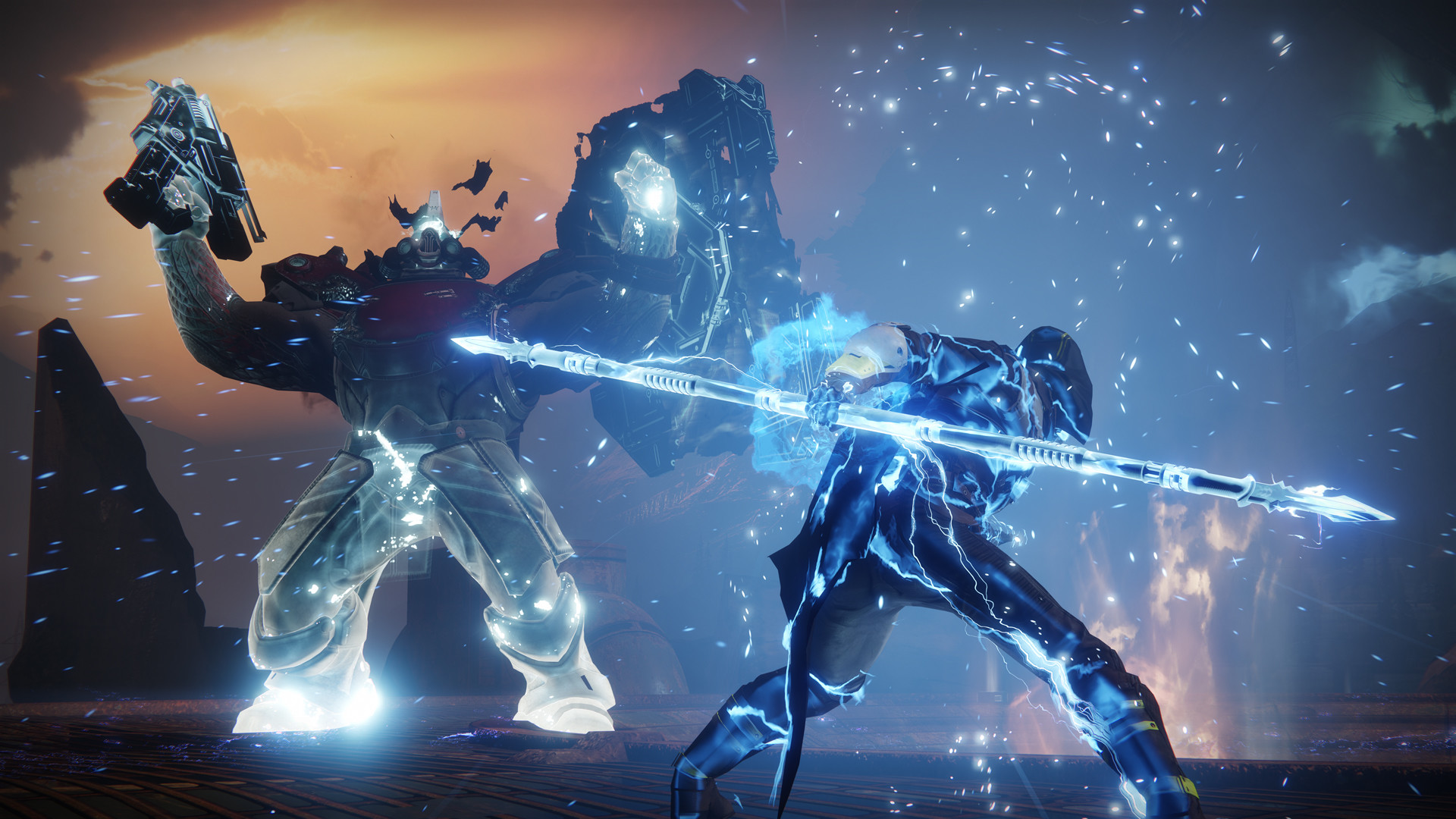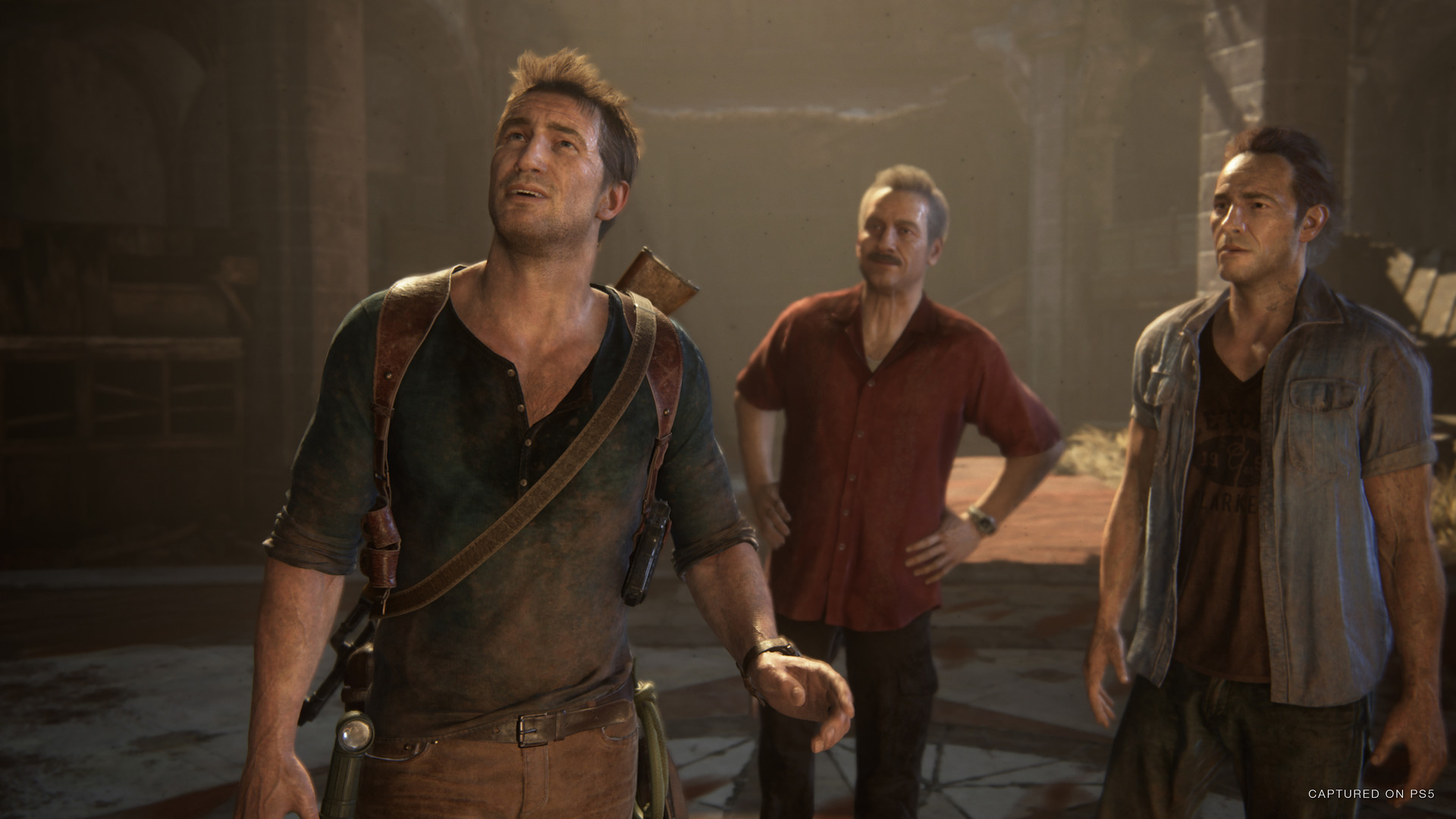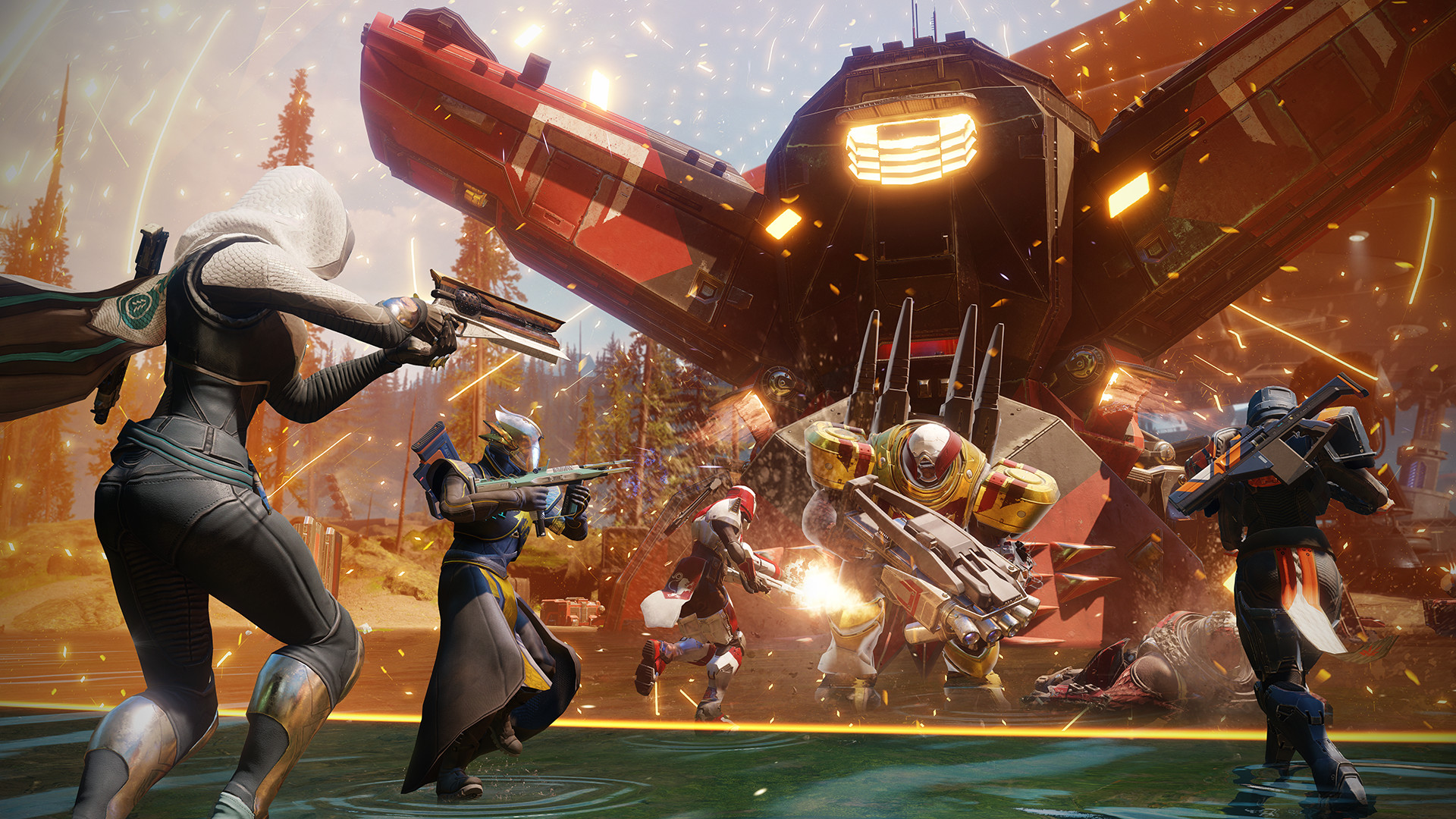Sony Paid Billions for Bungie and 'Destiny,' But What Are They Buying?
Another week, another massive and completely unexpected acquisition in the video game industry. Just recently, it was Microsoft trying to buy Activision Blizzard for $68.7 billion, a bid that’s likely to experience regulator scrutiny in the next year, and now, it’s Sony buying Destiny developer Bungie for $3.6 billion. In both cases, that’s a lot of billions.
Though less seismic than Activision Blizzard, Sony’s interest in the former developer of Halo continues the rapid consolidation that’s happening in video games. There’s an arms race, a feeling that the price tags on existing talent is going up, and so everyone is trying to cash in.
Towards what, though? With Microsoft, that’s clear: the company needs more content for its Game Pass subscription, the future of Xbox. With Sony, however, it’s murkier. Bungie doesn’t make the kinds of games that Sony is traditionally associated with, the splashy cinematic adventures made by studios like Naughty Dog. But a lot of people play Destiny.
With all that in mind, Rob Zacny and I sat down to think through what’s going on here, what the future of Bungie looks like, and what it possibly says about an industry that’s undergoing change at such a rapid pace.
Rob: So this makes perfect sense to me because Destiny was always a PlayStation game for me, and it annoyed me as more of my friends ended up on other platforms. But of course, with cross play that’s a moot point and I think this kind of speaks to one of the big questions around this generation and where the platform owners intend to take gaming next: what type of exclusivity do they actually value?
Because as much as I might have liked Destiny or daydream about returning to it, it’s not a “killer app” and we don’t even really talk about “killer apps” anymore. The idea that there is the Major Exclusive that’s going to be so compelling that it outweighs all the possible benefits of putting it on PC or a rival’s console because it will drive adoption of proprietary hardware seems increasingly quaint in the face of the agnostic postures Sony and Microsoft are both adopting.

Even if you think Bungie have such special FPS sauce that they’re gonna make Sony their next Killzone, I just don’t know that’s getting Sony to spend billions acquiring the company. Am I completely out at sea on this one? If you’re Sony, what is the outcome you’re hoping to buy here?
Patrick: The outcome I want is for Bungie to start making bombastic single-player campaigns again and stop demanding thousands of hours of my life on a loot treadmill, but I’m guessing that ship has sailed, Rob, as Destiny seems to have positioned Bungie as a live service studio.
How many successful multiplayer games can you name that Sony has published?
Sony’s pitch is to be gaming’s HBO, a club where you get the best of the best. Both the Xbox Series X and PlayStation 5 have been sold out since launch, but what do people talk about in the culture? PS5. It’s an object of desire. Having a PS5 in your home is a way of showing others that you’ve made it. You, friend, have a PS5. Just like you can see the dollars on-screen in a show like Game of Thrones, you can see the dollars on-screen in a game like The Last of Us.
But those games are inherently risky and increasingly expensive propositions. For all the hand-wringing over whether Day’s Gone was a success, the reason Sony didn’t greenlight a sequel was, albeit among other reasons, because it’s a company that deals in grand slams, not base hits. Bungie is a best-in-class shooter studio that’s proven it can produce a game with creative ups and downs, but maintain a fiercely loyal following that, crucially, is happy to pay more money over time, rather than entirely upfront, ala a game like God of War. (Sony’s moves to PC are an attempt to create revenue streams similar to a movie hitting theaters, then DVD!)
“We don’t even really talk about ‘killer apps’ anymore. The idea that there is the Major Exclusive that’s going to be so compelling that it outweighs all the possible benefits of putting it on PC or a rival’s console because it will drive adoption of proprietary hardware seems increasingly quaint.”
If you’re Sony, the floor of what this deal amounts to is interesting. Destiny 2 is an ongoing success, and quickly you’re getting the expansion and microtransaction money that comes with it—including people playing on Xbox. If that’s all Sony got out of Bungie, owning a professional live service developer bringing in regular profits, that sounds pretty good! Is it $3.6 billion pretty good? But we increasingly live in a world where gaming financials are obscured—thanks to digital, it’s no longer longer possible to really know how much a game sold, and subscription services make the math fuzzy and “sales” not the only relevant metric—and so the best measure of whether it’s been a “success” might require a crystal ball that answers one question:
Does Sony still own Bungie in 10 years, or will they wiggle towards independence again?

Rob: I wonder what folks at Bungie want. I’m less sold on the idea that Sony is acquiring a AAA studio that has “figured out” live service, mainly because it’s been such an obviously painful and rocky road to arrive at this point. We’ve talked at length about how poorly the game tends to showcase its content library or help players navigate it, and on top of that you have the fact that Bungie explicitly justified stuff like the Content Vault in terms of sustainability. Whether that’s financial sustainability or ensuring players can reliably find groups for their missions, I don’t know, but I’ve always wondered to what degree Destiny is a hit versus something just popular enough to finance the costs of its ongoing development. Destiny is in a good place, but I’m skeptical that Sony is acquiring a live service brain trust to help them master that business model.
But it depends on what the actual pitch is for this marriage. Because I can see a couple angles that make a lot of sense depending on whether Bungie predominantly want to be a Destiny Studio forever, or if there’s interest at the studio to branch out and do other things. Given the emphasis Bungie places on future games and creative freedom in their announcement of the deal, I suspect it’s more the latter.
If folks at Bungie are eager to do more than create content for Destiny and manage that game, I could see the acquisition creating the opportunity to bring on more people and maybe even support studios under a Destiny team that resides within Bungie while other parts of the studio begin to spin-up other projects. That’s the kind of opportunity being folded into
a huge games company gives you and offers a pretty compelling reason to sell. Destiny continues to thrive, but both Sony and Bungie open up the possibility of creating Bungie’s Next Big Hit.
But I’ll tell you something: I could easily see where having come this far with Destiny, Bungie and Sony both see something that could be much bigger and more successful with more investment and marketing behind it. It’s a better product now than it was when Activision and Bungie split, the costs of Bungie’s learning curve in getting it to this point have been paid, and now it’s something that could really take off with a ton of fresh marketing and development resources put behind it. I’m not sure I would agree with all that reasoning (staking everything on growth is a good way to turn the sustainable into the unsustainable) but I could see where this appeals to both sides of this deal.
You asked if Bungie might, in ten years time, be dreaming of independence again. I kind of doubt it. They escaped being The Halo Studio at Microsoft only to become The Destiny Studio, a situation which if anything has had even more limited creative horizons than they enjoyed at Microsoft. If they are able to open up their creative playbook under Sony, I doubt there would be as many itchy feet at Bungie in ten years’ time. My suspicion is that the freedom they want comes with reliable access to large amounts of capital, and I’m not sure they get that as an independent studio.
Patrick: I’m not suggesting Bungie has “figured out” live service insomuch as it’s much easier to buy a thing that addresses a weakness than it is to learn it yourself. See: the motivation behind every acquisition Microsoft has made over the last five years, because it spent the previous five forgetting how to make games. The short term fix was to buy people who were already doing it!
A couple of points that have come up in conversation with people near or around this deal: the landscape for funding massive projects as an independent developer is extremely weird—and it’s only getting weirder. The types of games that Bungie wants to make are not small-scale, the cost of continuing to run those games is high, and this means you are forced to look for, at times, potentially sketchy-feeling places for the kind of capital required to pull them off. Being underneath Sony means you’re no longer spending hours pitching external investors about how you’re going to pull this off, and now you only have to convince the company that’s very publicly paid several billion dollars because it believes you’re smart. That's a more comfortable footing.
Secondly, and this relates to the broader trend of consolidation that we’re seeing, what happens if you have a bad experience working at one of the now many prominent video game studios that are now owned by the same corporation? Do you feel comfortable making a lateral move where your email login password would probably be the same, or do you hope things are better at the other set of studios under yet another large corporate umbrella? Bungie themselve recently went through a cultural reckoning, following an extremely good investigative piece by IGN’s Rebekah Valentine. Sony has owned Naughty Dog, a developer known for the way it grinds workers into dust, for more than 20 years now. It’s the type of long term ripple effect we can’t entirely grasp at the moment, but given all rumors are suggesting more consolidation is on the way, it won’t be long before developers who like to work on certain types of games on a certain scale will suddenly find themselves looking at a smaller set of work options. It’s worrying.

Sony buying Bungie feels seismic because of the price tag, but it’s actually a pretty normal acquisition, one unlikely to raise many eyebrows among regulators. Meanwhile, Bloomberg reported Microsoft buying Activision Blizzard is going to prompt a review by the FTC. That’s good! But it also introduces a real chaotic timeline possibility: Sony ends up buying a bunch of high-profile developers as the result of Microsoft’s spending spree, while Microsoft’s biggest acquisition has the potential to not happen at all. I still expect the deal to get through, but still!
Where do you think all of this lands by year’s end? How are we thinking about the industry?
Rob: I mean in the short term, the wave of acquisitions is going to continue to build. You make a great point about this deal being pretty pedestrian: compared to what Microsoft did with Bethesda and wants to do with Activision, this is notable but not earth-shaking.
But I think we’re in for a year of similarly big deals as more company executives and investors see a chance to cash-out as their value increases due to the buying frenzy. The thing I don’t fully see yet is what the next stage of this looks like. I still suspect the next stage of competition in the AAA part of industry is going to hinge on platforms and subscriptions, but I don’t know how all these purchases are going to be weaponized in that battle. Or maybe more ominously, I see pretty clearly how Microsoft can develop its position from here. I’m less sure about Sony. Eventually that much-coveted box is going to be ubiquitous, but then what? You mentioned that their pitch is to be the games’ equivalent of HBO but maybe another analogy could also apply: Sony is The Sharper Image, with an expensive inventory of premium-looking products for enthusiasts to covet and gush over. Across the street, Microsoft is putting up a Sam’s Club.
